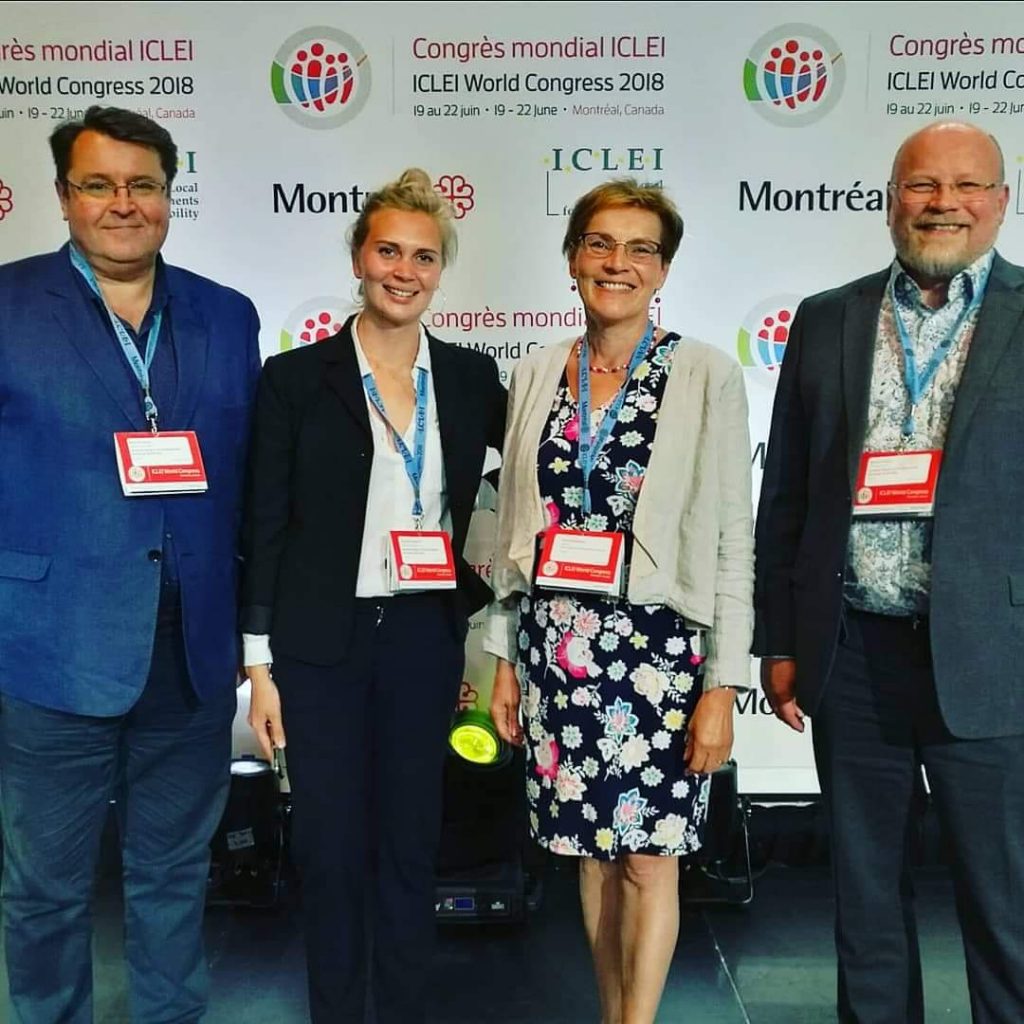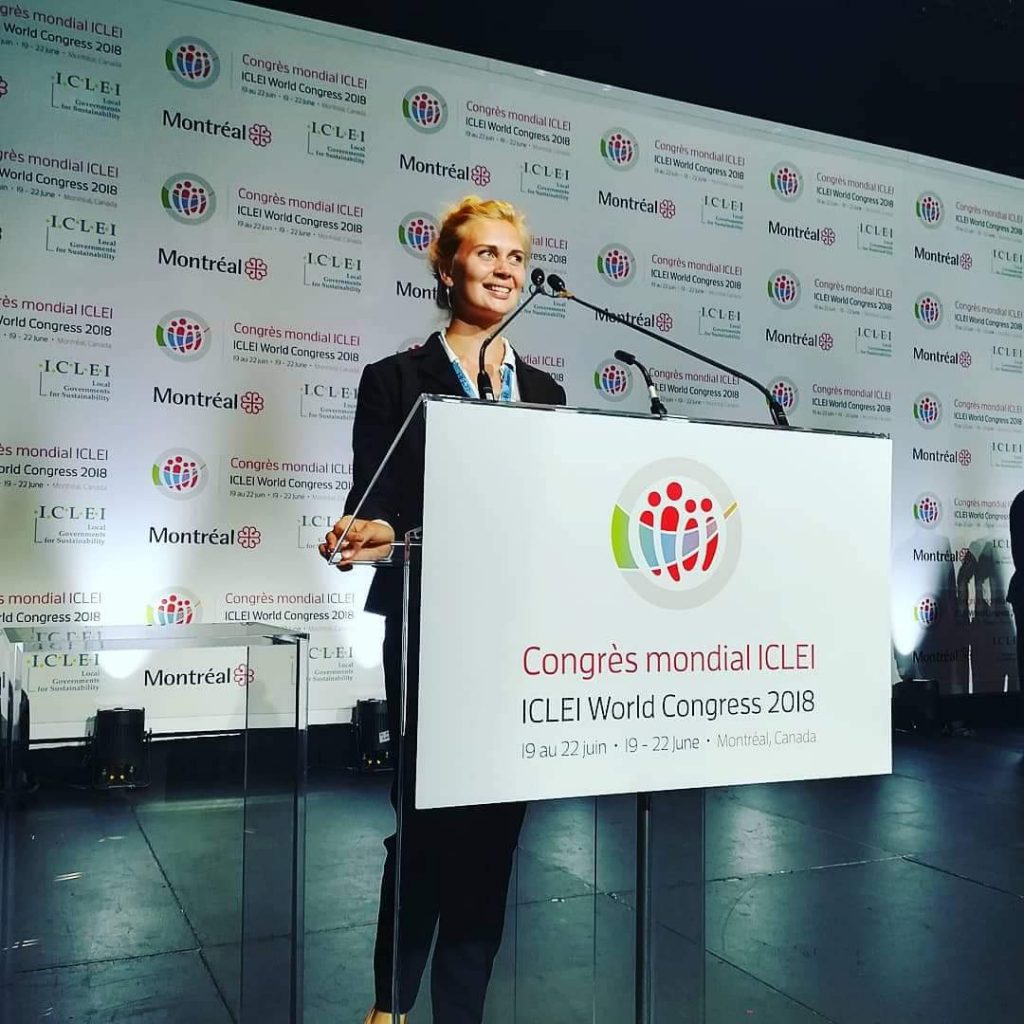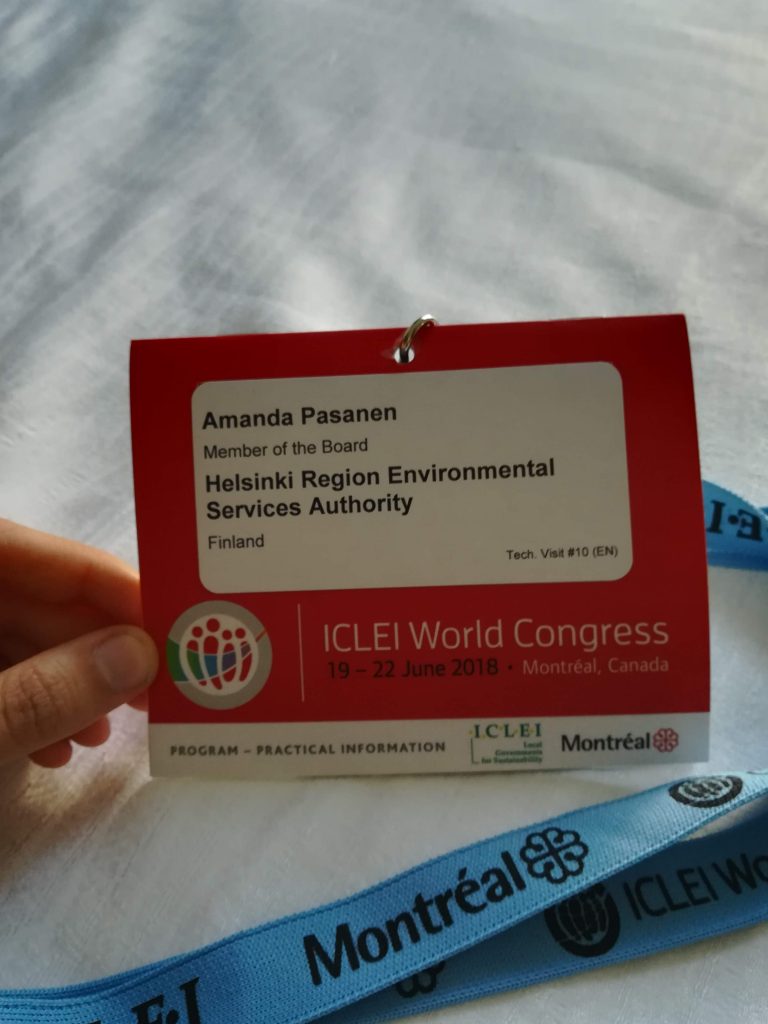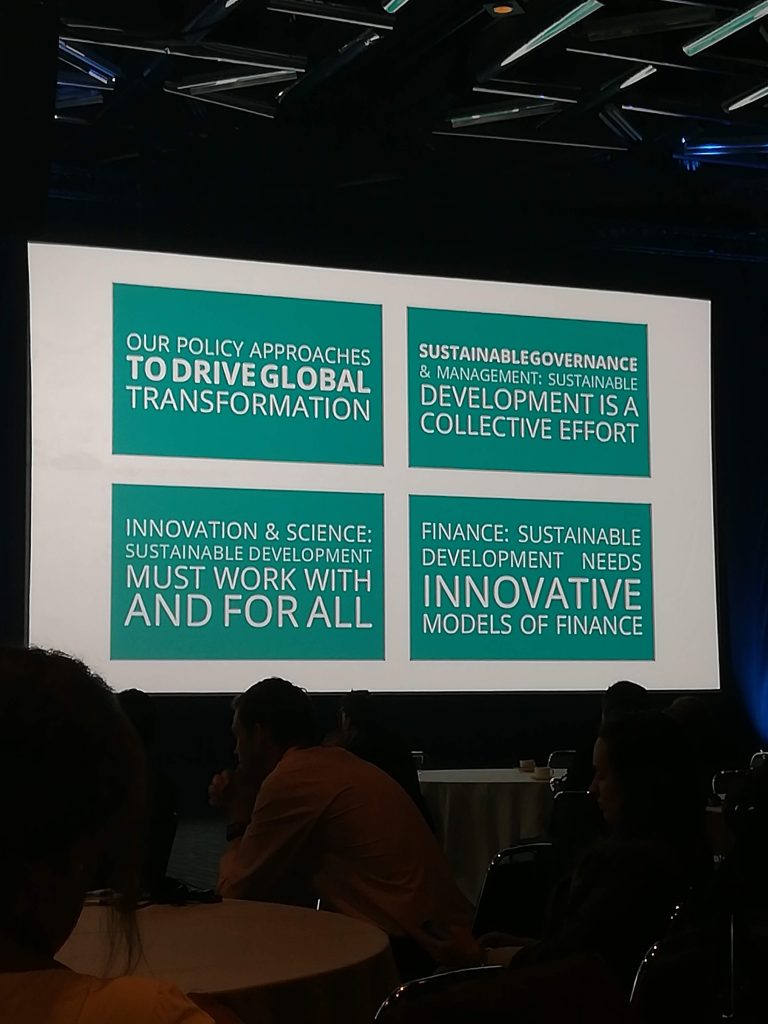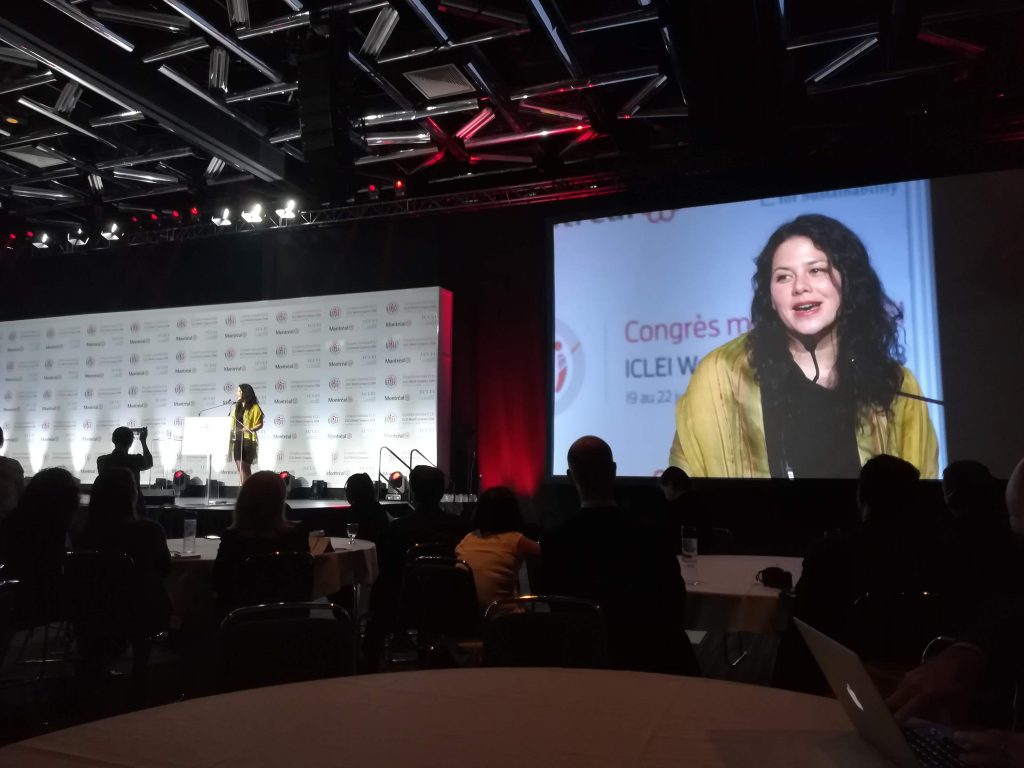What a great week in Montreal at the ICLEI World Congress! City leaders and local governments from all over the world come together to share and develop ideas for a more sustainable urban development and to tackle sustainability challenges at a local level. I didn’t realise before how networked and powerful local governments can be when they come together and commit to amibitous climate goals and other important aims.
Some take home messages from the congress:
1. Cities and local governments have many advantages that nation states doesn’t. They can support each other and cooperate more efficiently and equally than nation states in many ways. Local governments have power over many sectors and can break silos. The cooperation and cocreation together with stakeholders is also easier than for nation states. In other words, the local leaders are closer to the people and can work closely together with them.
2. We need to pay attention to the nature and biodiversity in our cities. There is still a lot to be improved in how we communicate sustainable solutions to the public. We need to get people to understand how dense cities save green areas and how biodiversity is also essential for human life. On the national level urban land expansion should be controlled so that it doesn’t happen in areas that are not suited for it and when it happens, that it is managed in a sustainable way. We need to make our cities green also to keep the urban environment livable. Biodiversity strategies, mapping and monitoring is important in order to preserve the existing diversity and to develop green areas.
3. The private sector and sustainable procurement plays a crucial role in solving sustainability challenges. Cities determine the framework for private companies in which to operate, which is an opportunity to direct to more sustainable practices through strict procurement guidelines. For example the construction and building sector makes up to 40% of greenhouse gas emissions world wide and is the biggest consumer of resources. Life cycle assessments should be part of the approval processes of new buildings and the lowest price shouldn’t always be the priority in construction procurememts. Instead the reuse potential of the materials should be taken into account. Cities can also create a supportive emvironment for sustainable private sector actors by engaging them in action plans and by cooperation projects. Riskier experiments are also easier to realise with private money.
4. Equity and taking into account vulnerable groups of people is crucial for sustainable development in cities. They need to be integrated in decission making processes and also be decission makers. Reconciliation between colonizers and colonized is needed. We need more women in leading positions and we need more women in technical and economic fields. Women are an important asset in the fight against climate change, especially in the global south where they are the ones who take care of for example nutrition and waste management.
5. Implementation of global and national targets on the local level needs facilitation and capacity building on all levels. Many times there are gaps between the upper level targets and practical implementation on the grassroot level. Efficient and innovative governance practices are needed in order to ensure that ambitious targets become actions in reality.
